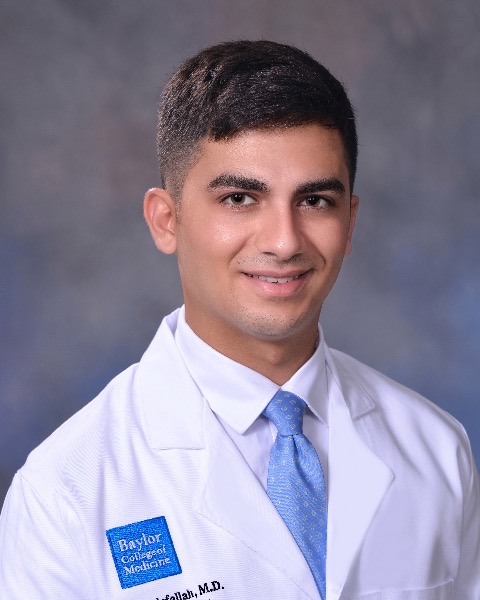Other
Impact of Cervical Spine Procedures on Postoperative Outcomes of Total Shoulder Arthroplasty
Friday, February 21, 2025

Youssef M. Khalafallah, MD
Orthopedic Surgery Resident
Baylor College of Medicine
Baylor College of Medicine
Presenting Author(s)
Disclosure(s):
Youssef M. Khalafallah, MD: No financial relationships to disclose
Introduction: The increasing prevalence of total shoulder arthroplasty (TSA) and cervical spine surgeries indicates a possible overlap in patient populations and related pathologies. This study investigates the impact of cervical spine procedures on postoperative TSA outcomes, considering the growing evidence of interconnected cervical and shoulder pathologies.
Methods: We analyzed TriNetX database records from 86 healthcare organizations, spanning January 1, 2012, to March 12, 2024, for patients who had undergone either motion-sparing cervical procedures or cervical fusion before TSA using CPT and ICD-10 codes for cohort identification. Patients were categorized according to their cervical procedure. 1:1 propensity score matching was performed to adjust for variables including age, race, sex, diabetes, heart failure, chronic kidney disease, liver disease, and chronic obstructive pulmonary disease. The study assessed 90-day medical complications and 2-year mechanical outcomes, comparing categorical variables via Chi-Squared exact test with univariate regressions. Patient outcomes, odds ratios, 95% confidence intervals, and p-values were reported.
Results: The study examined 4,518 patients, with 2,706 receiving motion-sparing procedures and 1,812 undergoing cervical fusion before TSA. After propensity matching to adjust for demographic and comorbidity differences, the 90-day outcomes showed a significantly higher infection rate in the motion-sparing group compared to the fusion group (2.0% vs. 1.1%; OR 1.806, CI [1.026, 3.179], p=0.038). No significant differences were observed in other short-term outcomes or in 2-year mechanical complications such as periprosthetic dislocation, joint infection, aseptic loosening, or revision surgeries, all showing comparable rates.
Conclusion : These findings suggest that although infection rates may differ depending on the type of cervical surgery performed, these surgeries do not impact the long-term mechanical outcomes of TSA. Consequently, the type of cervical surgery should not influence the assessment of a patient's suitability for TSA.

.jpg)